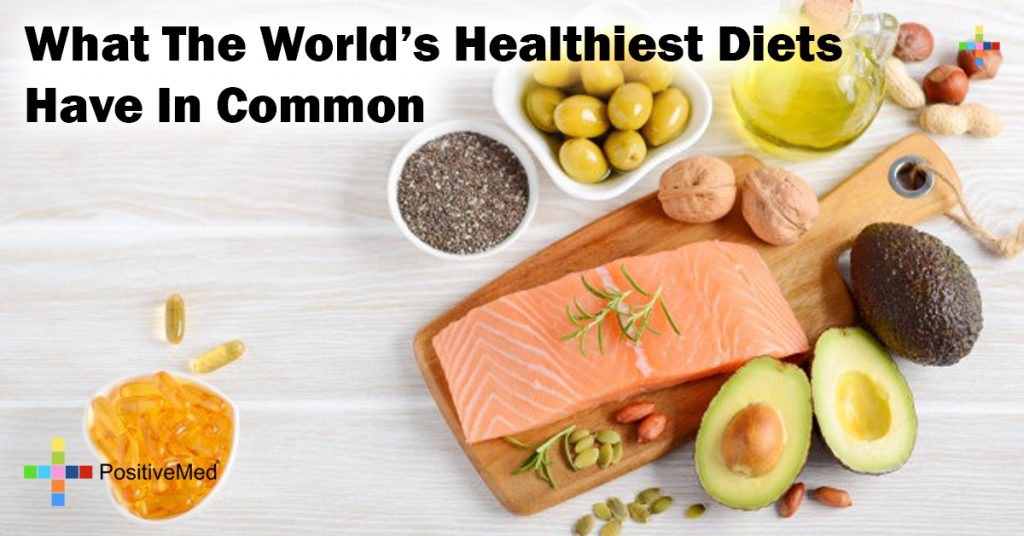
What The World’s Healthiest Diets Have In Common
Americans aren’t that healthy, and we’re aware of it. Perhaps overly so. We eat much larger portions than people in other countries. We add lots of sugar, thickening agents (like corn syrup and gelatin), and tons of salt to our foods. We don’t think about eating locally or seasonally. Food is almost too abundant, with the cheaper, low quality stuff being high in sodium and fat.
This contrasts greatly with Mediterranean, Okinawan, and Nordic diets which are closely related to regional and seasonal produce. Most other healthy eating cultures make meals an event – such as multiple courses around the family dinner table or a glass or two of wine at a long lunch – as opposed to hastily shoving food into our mouths, barely chewing.

Every culture has its own unique food to bring to the table, and it’s good to remember that it’s due to the incredible diversity that there is more than one way to be healthy or lose weight. The overlapping feature in most of the world is that they walk way more than the average American. It doesn’t matter if you’re eating the exact same diet as someone in China, if they’re walking more than you they’re also going to be a lot thinner and probably live longer.
What it all boils down to, what these diets have in common that regards actual food, is that they’re low-fat, rich in lean protein, fish, fruits, vegetables, and beans. Plant-based diets have been proven to reduce cholesterol levels, whereas fruits and vegetables often have antioxidants. Consuming the omega-3 fatty acids in fish can reduce the risk for heart disease.
There are a few indulgences, such as cured pork, condensed milk coffee drinks, and high-fat cheeses – they aren’t as prone to binging or making them staples in their diets like Americans.
Beyond common-sense, science doesn’t really have much to say about traditional cuisines being the healthiest. It’s impossible to say whether a longer life expectancy has something to do with a better healthcare system rather than eating habits. No one researcher has developed a way to measure the health benefits of one country’s diet versus another. There are some indications that Chinese and Japanese diets have something that protects against chronic diseases and improve longevity, but there isn’t enough definitive evidence to say one way or another.
After all, the Japanese eat lots of cruciferous vegetables like broccoli, bok choy, cabbage, and their main protein sources are fish and soy – that’s all excellent news. However, they also have a preference for cured foods which contain a colossal amounts of sodium which leads to strokes and high blood pressure.
The only exception to this appears to be the Mediterranean diet – high in fruits, vegetables, whole grains, and olive oil. In 2008, a meta analysis of 1.6 billion subjects over twelve different studies found that people who stick closely to this diet have a 9% lower death rate than people who ate the same diet less stringently. Several other studies have shown that it can protect against heart disease. However, there’s no way to pinpoint the most beneficial part of that diet. It could be the bulgur, the fava beans, or the hummus – or a combination of everything working together.
At the end of the day, it doesn’t matter which things you borrow as long as you simply aim for less red meat and more fruits and vegetables, and take a walk once in a while.





